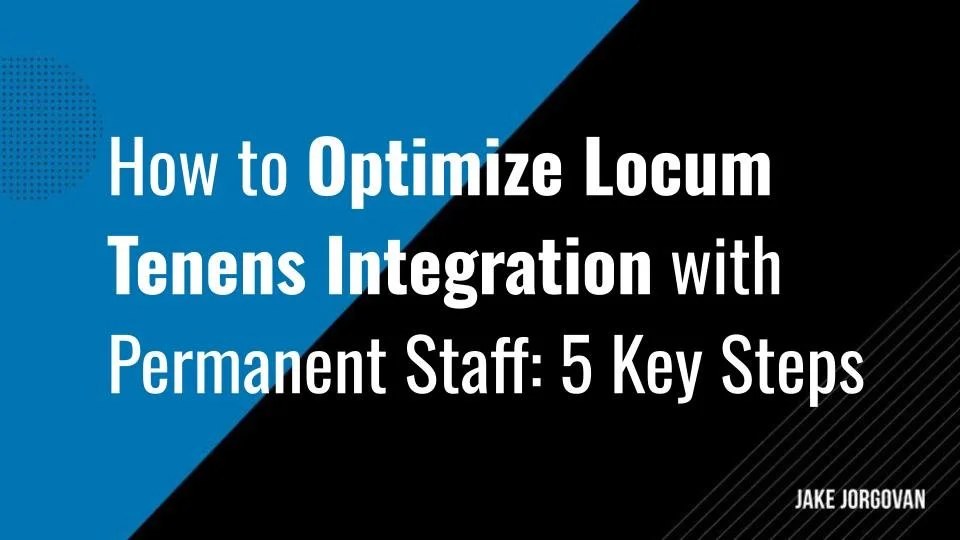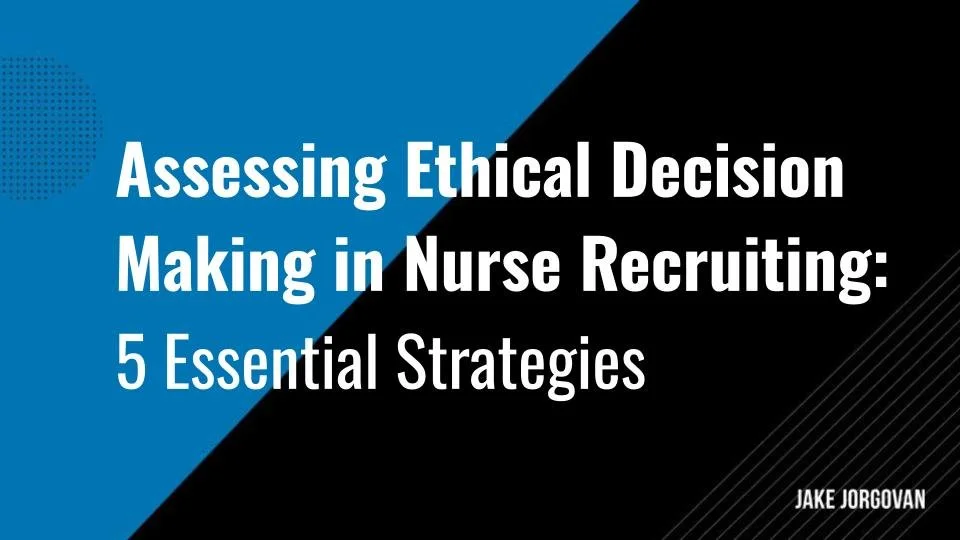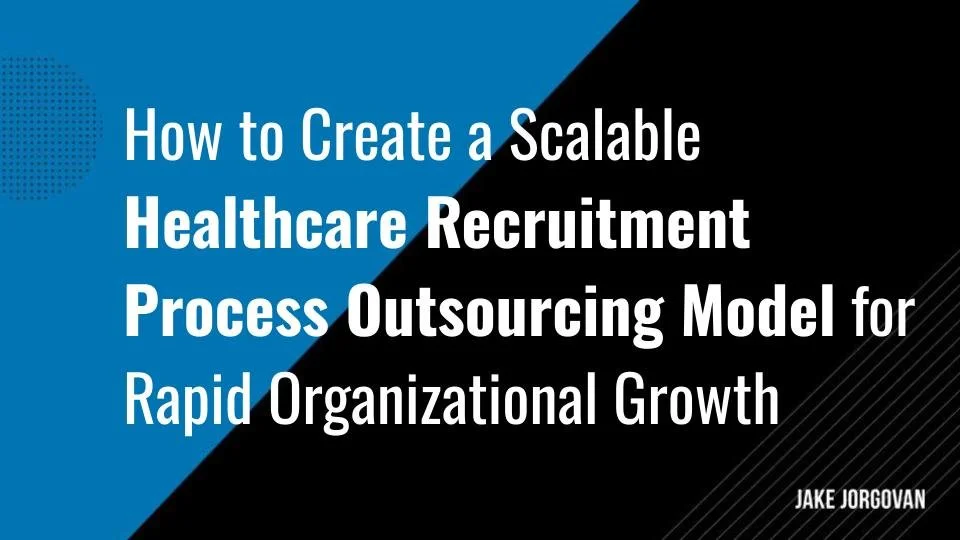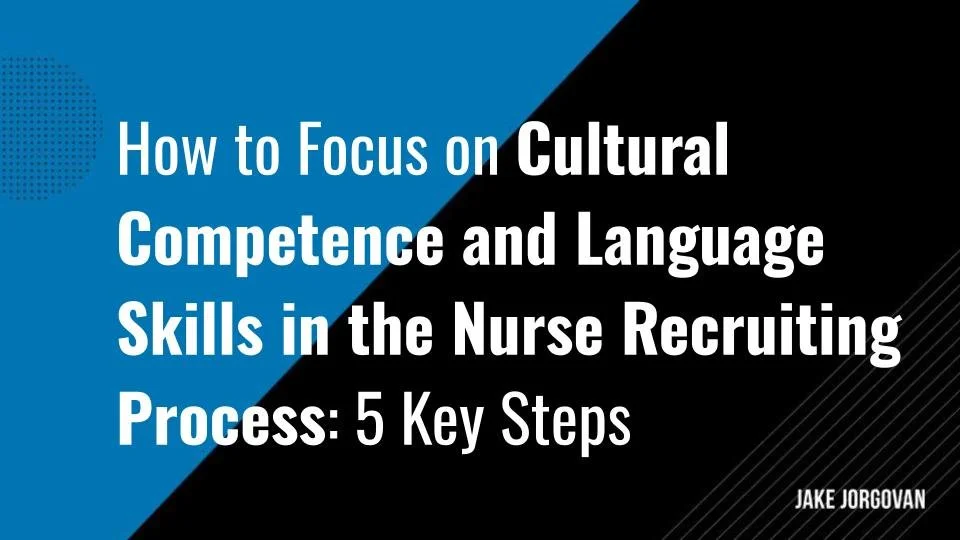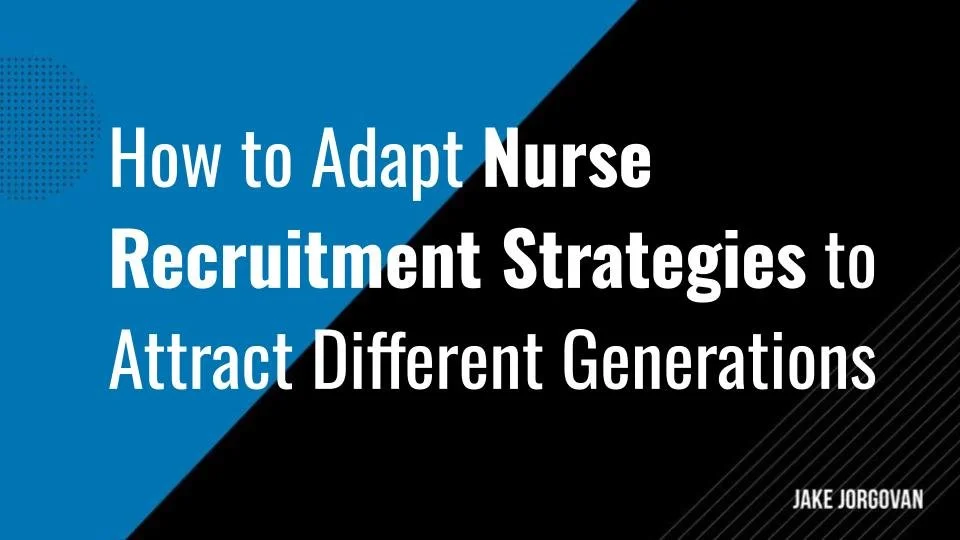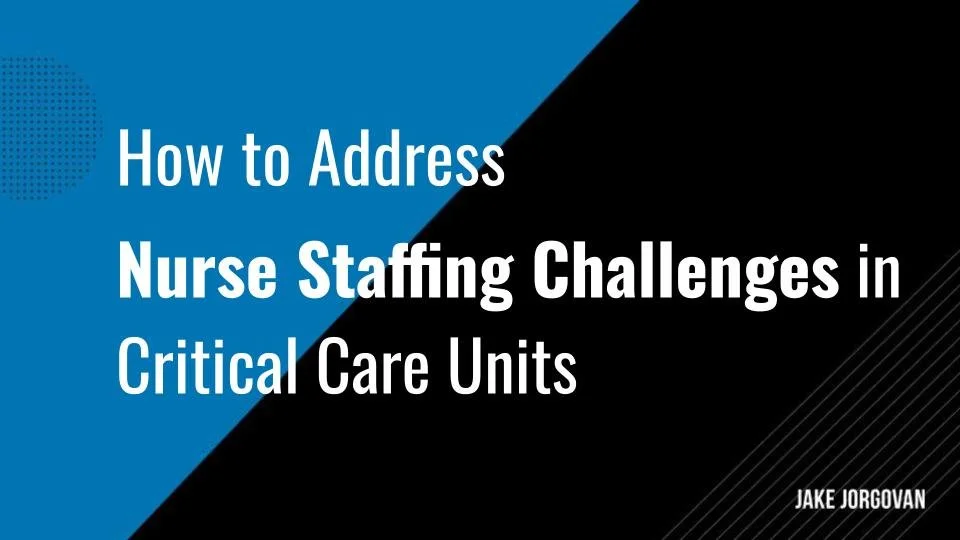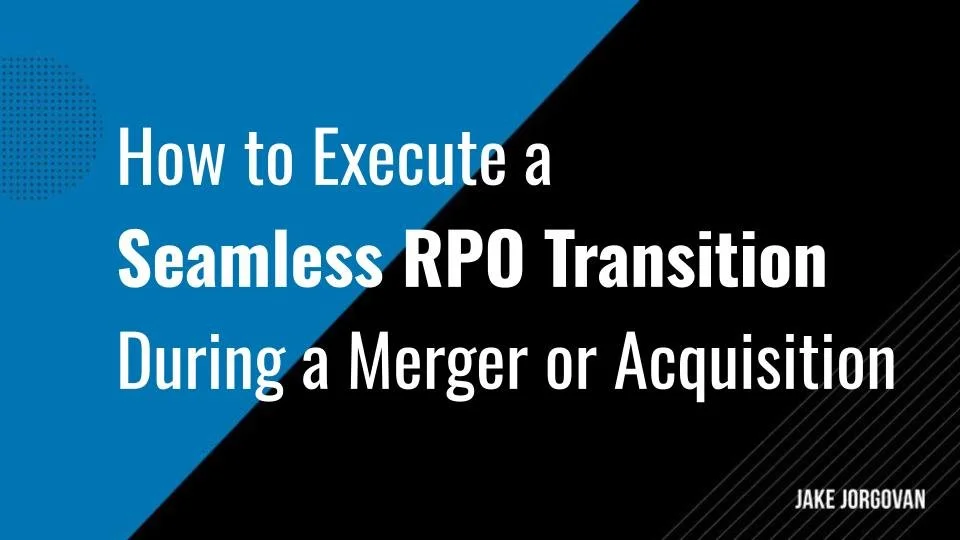How To Address Burnout in the Healthcare Recruitment Process: Hiring for Resilience
Burnout in healthcare recruitment is a rising concern.
Hiring teams feel the strain as they search for resilient candidates in high-stakes environments.
The challenge isn’t just finding skilled professionals—it's ensuring they can handle the intense demands of the job.
Ignoring this critical issue leads to turnover, costly mistakes, and staff shortages.
In this article, we’ll explore how to address burnout in healthcare recruitment by hiring for resilience.
Discover actionable strategies to identify candidates who can thrive under pressure and sustain long-term performance.
5 Strategies for Addressing Burnout in the Healthcare Recruitment Process
1) Include Resilience and Stress Management Assessments in the Candidate Screening Process
Healthcare burnout is a critical issue affecting both patient care and staff retention. To reduce its impact, identifying candidates who can handle stress is key. This involves evaluating resilience in a structured way that ensures you make informed decisions. Here's how you can implement a step-by-step process to screen for resilience during recruitment:
Choose appropriate assessments: Use validated resilience and stress management assessments specific to healthcare environments. These tools should measure traits like adaptability, emotional regulation, and problem-solving abilities under pressure.
Standardize the process: Apply these assessments to all candidates to ensure consistency. Tailor the benchmarks to the demands of high-stress medical settings so you filter in those with the right mental fortitude.
Integrate assessments early: Include resilience screening early in the hiring process, ideally before face-to-face interviews. This helps prioritize candidates better equipped to handle the emotional and psychological demands of healthcare roles.
Analyze results in context: Examine assessment results alongside other factors, such as past work experiences in high-pressure environments, to comprehensively understand a candidate's capacity for stress management.
Provide real-life scenarios: Use these assessments to simulate real-life healthcare challenges. Test not only for theoretical knowledge but also for practical application under stress.
Insider Tip:
We recommend running a pilot program for new hires based on these assessments. Track retention and burnout rates over 12 months and refine the screening process based on data-driven outcomes. It will give you concrete proof of which assessment methods truly predict resilience.
2) Prioritize Past Experiences in High-Stress Healthcare Environments During Interviews
High-stress healthcare environments test the skills and the mental toughness of professionals. Identifying candidates who have thrived in similar settings can give you confidence in their ability to handle demanding roles. The focus should be on revealing experience and resilience in challenging circumstances. Here's how you can refine this process:
Ask targeted questions: Develop interview questions that dig into specific past experiences in high-pressure healthcare settings. Focus on their roles in crises, such as emergency departments, ICUs, or pandemic responses, to assess their capacity to work under pressure.
Look for real-life examples: Require candidates to provide concrete examples of their actions during stressful periods. Press for details on how they managed patient care while navigating burnout risks and what strategies helped them maintain performance.
Evaluate decision-making: Assess their decision-making process when time-sensitive, high-stakes choices were required. Determine how they prioritized tasks, whether they sought help when needed, and how they dealt with emotional tolls.
Understand support systems: Explore how they built support networks among their colleagues. Strong candidates should recognize the value of collaboration and peer support, especially when working long shifts or managing difficult cases.
Correlate with resilience: Cross-reference these experiences with resilience assessments, aligning practical, real-world performance with psychological data for a fuller picture of the candidate’s suitability.
Insider Tip:
To assess these responses, create a panel of senior staff members with experience in high-stress areas. They can offer specialized insight into the subtle markers of resilience that may not be obvious to those outside those environments. This will give you a deeper evaluation framework beyond typical interviews.
3) Focus on Recruiting Candidates With Proven Coping Strategies for Workload Demands
Healthcare roles come with relentless workload demands. Not everyone can navigate this without burnout or performance decline. Identifying candidates with proven coping strategies is crucial for sustainable success in high-stress environments. Here’s how you can focus on uncovering those strategies during the recruitment process:
Ask about specific challenges: Ask candidates to describe challenging moments in their careers where the workload threatened to overwhelm them. This gives you a glimpse into how they perceive and approach stressors.
Probe for action steps: Once they've shared the scenario, ask what actions they took to manage workload pressure. Look for evidence of self-regulation techniques such as time management, delegation, and setting boundaries, not just technical solutions.
Evaluate self-awareness: Self-awareness is critical in recognizing and addressing stress before it escalates. Ask how they monitor their own mental and physical well-being while handling demanding tasks.
Assess recovery methods: Dig into what candidates do after intense periods of workload pressure. Look for healthy recovery habits—whether it's taking structured breaks, engaging in wellness activities, or seeking peer support—that are signs of sustainability in the role.
Cross-reference with previous roles: Examine how they applied these strategies across various roles. Candidates who consistently apply effective coping mechanisms across different healthcare settings are more likely to succeed long-term.
Insider Tip:
Consider integrating a work simulation into the interview process. Test how candidates handle a simulated heavy workload with tight deadlines. You’ll get a direct view into their real-time coping strategies, which beats theory every time.
4) Highlight Mental Health and Wellness Resources as Part of the Employer Brand to Attract Resilient Talent
Attracting resilient healthcare talent requires more than just competitive salaries. Candidates want to know that their employer will value their mental health and well-being. Highlighting wellness resources in your employer brand can make your organization stand out to the right candidates. Here’s how you can effectively promote these resources:
Make wellness visible on job postings: Include a section that explicitly outlines your organization's mental health and wellness programs. Mention counseling services, stress management workshops, or wellness incentives to demonstrate your commitment.
Promote peer support programs: Emphasize any mentorship or peer-support systems that help healthcare workers manage burnout. This shows candidates that they won’t face the pressures of the job alone and have a support structure in place.
Showcase flexible scheduling options: Flexibility can be a significant mental health booster for healthcare professionals. If your organization provides options like reduced hours, rotating shifts, or mental health days, clearly outline these benefits upfront.
Feature real employee stories: Use testimonials from current employees who have benefited from these wellness resources. Real-world examples resonate more than general benefits lists, especially in a high-stress field like healthcare.
Engage on social media: Consistently share content about mental health and wellness initiatives on your social platforms. Candidates often research companies online before applying, and this helps reinforce your brand’s focus on resilience and well-being.
Insider Tip:
Create a dedicated landing page for wellness initiatives on your careers site. Include detailed resources, videos, and even stats on how these programs have impacted staff retention and morale. This will serve as a powerful tool for candidates evaluating whether your organization aligns with their values.
5) Incorporate Behavioral Interview Techniques to Evaluate Emotional Intelligence and Adaptability
Evaluating emotional intelligence and adaptability is critical when recruiting for high-stress healthcare roles. Behavioral interview techniques allow you to assess how candidates will react to real-world scenarios. This reveals their coping mechanisms and adaptability under pressure. This approach provides a more accurate gauge of how they’ll handle the challenges of the role. Here’s how to incorporate these techniques effectively:
Design scenario-based questions: Present candidates with scenarios that replicate the emotional and operational challenges they’ll face in the role. Ask them how they would respond in specific situations, such as a patient emergency or team conflict, to see their real-time decision-making.
Probe for emotional regulation: Focus on questions that reveal how they manage their emotions during stressful situations. Ask for examples where they had to stay calm under pressure, and explore how their emotional control impacted the outcome.
Assess adaptability through past challenges: Ask them to describe a time they had to pivot in response to unexpected changes in their work environment. Evaluate their ability to adapt swiftly and find solutions without being overwhelmed.
Evaluate teamwork under stress: Test their capacity to collaborate when under pressure. Pose questions about how they manage relationships with colleagues during critical moments, focusing on teamwork, communication, and problem-solving skills.
Look for self-awareness: Include questions that push candidates to reflect on how they handle their own emotional and physical well-being in high-stress environments. This self-awareness signals their ability to sustain themselves in demanding roles.
Insider Tip:
To gain deeper insights, have candidates participate in a brief role-playing exercise where they must resolve a stressful team conflict. Observing their emotional responses and adaptability firsthand provides a more authentic evaluation than hypothetical questions alone.
Focus on Resilience in the Healthcare Recruitment Process
Hiring for resilience is a crucial step in addressing burnout within healthcare.
It’s building a workforce that can endure the intense demands of the job.
Prioritizing resilience ensures long-term success, reduces turnover, and improves patient care.
The healthcare environment will only continue to intensify. This makes it essential to recruit professionals who can thrive under pressure.
Focusing on resilience can create stronger teams, better outcomes, and a more sustainable future for healthcare.











